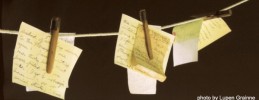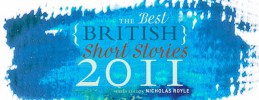
photo by Kriss Szkurlatowski
The following was delivered as a brief talk on the subject of ‘The Self in Writing’ at the University of Chichester on June 1.
Soumya Bhattacharya will be reading from his memoir, Why India Can Never Do Without Cricket, at London’s Nehru Centre from 3.30pm on June 16. He will be in conversation with Jason Cowley, author and editor of the New Statesman. All welcome.
He will also be talking about ‘The World through Memoirs’ at 5.15 on Tuesday 21st June in Cloisters at the University of Chichester. Email f.armitage@chi.ac.uk for more information.
*
by SOUMYA BHATTACHARYA
As a practising writer, what, really, are the pleasures and perils of writing? And in what way and to what extent, in the exercise of writing, the practice of it, does the writer’s self come into play?
I write memoirs, narrative non-fiction and fiction, and I can speak for those genres. How does writing transcend the self while drawing on some of the experiences that particular self has had? How does the self permeate the writing?
It’s a tricky business.
This is a subject that has preoccupied generations of writers. When it comes to the writing of fiction, the great American writer Richard Yates has a terrific line on it. ‘The impulse of fiction is autobiographical, but the facts never are,’ Yates said. Saul Bellow, another American great who got his due in his lifetime unlike Yates, spoke about fiction being the higher autobiography. Kingsley Amis, the English writer who is deeply unfashionable now (well, even his son Martin, now in his sixties, has become unfashionable, so what does that say about literary fashion? I speak as admirers of both), called all fiction edited experience.
Of course, there is a great deal of irony in what both Bellow and Amis said. Both statements are reductive in the way that writers who get the in joke understand. Readers who tend to take things literally miss the point. If only things were that simple.
Why does the writing make us seek the writer, Julian Barnes asks in his magnificent book, Flaubert’s Parrot. But a lot of readers seek out the writer from the writing. For the sake of those readers, it is important to make this point: memoir of narrative non-fiction is one thing, although even there it is hardly as straightforward as some might imagine. But when it comes to fiction, it gets even more complicated. That’s because the writer of fiction is everywhere and nowhere in his own work.
‘Everything you want to know about me is in my novels,’ says VS Naipaul, whose most lasting contribution to the 20thcentury canon is likely to be a genre-bending offering of fiction, travel writing and memoir, all in the same book. ‘Everything you want to know about me is in my novels,’ is as true as it is false. Yes and no. Certainly. And not at all.
In a certain kind of realistic literary fiction, the writer takes the autobiographical impulse and runs with it. What emerges on the page is something that is transmuted by imagination. It transcends the facts. It transcends even the impulse. The self enters the writing; and the writing emerges from the self. Many readers forget the one link between the two that makes this possible: the leap of the imagination.
In The Counterlife, one of his greatest – and perhaps most underrated novels – Philip Roth talks about this. In his usual acerbic manner, full of the jokey postmodern, metafictional gameplaying that he is so brilliant at, Roth has his narrator Nathan Zuckerman say: ‘Life and art are distinct. Yet the distinction is wholly elusive. That writing is an act of imagination seems to perplex and infuriate everyone.’ Those who seek the writer in his writing would do well to pay attention to this. The writer is everywhere and nowhere in his writing.
There is one thing that the writer – be it in literary fiction, memoir or narrative non-fiction – undoubtedly relies a great deal on. And that thing is his memory, his recollection of things, the manner in which he remembers details that give shape and meaning and significance to his narrative. The Nobel Prize winner Gunter Grass, who wrote in all the genres I have mentioned, wrote in an essay:
When it comes to recollection, the writer is a past master. Since narrative is what he writes, he has been trained in the craft. He knows that recollection is like a cat that needs to be stroked – sometimes in the wrong direction – until it starts to tremble, and then to purr. This is how he uses his own recollections… Recollection is his quarry, his compost heap, his archive. He nurtures it as carefully as if it were a second crop.
I find that quote from Grass to be a terrific exposition of how the self – and the self’s recollection of things – forms one of the pillars of any kind of writing. Of course, remembering is not the same as not forgetting. Like close reading, it is an acquired skill.
All writers remember very well – and if they don’t, they are reminded of it every time they sit down at their desks – how hard it is to actually get the writing done. Talking or writing about writing is much, much easier than doing the writing. I speak from bitter experience.
This is the other way in which the self enters writing: the self that does the actual stuff, the self that is involved – more intimately than anyone else – in the process of creation, the self that nags and worries and, on occasion, exults.
Writing is a lonely endeavour. Unlike, say, filmmaking, or putting out a play, it is not collaborative in any way. There is only the writer, and his aloneness, and the page or the screen. He is involved in the creation of a parallel world, a home of his own, to which he returns every time he returns to his desk.
No wonder it is so full of self doubt. Is what I am writing good? Is it any good at all? (If he didn’t, if he believed that whatever he wrote was always top drawer, it is more than likely that what he wrote wouldn’t be much good.) And he does it, and he goes back and looks at it, and it seems not much good, and he is filled with self loathing for what he has produced. Why can’t my stuff be any better? Often, he hates himself for it. It’s a bit like going on and on, trying to build a brick wall without knowing if it will stand in the end. It’s not just me. The American writer William Styron said: ‘Writing is hell.’ And the Scottish writer AL Kennedy, who blogs about writing on the Guardian’s website, wrote: ‘It’s literature, baby, no one ever said that it would be easy.’
And yet, contrary to the self doubt and the self loathing runs another current: that of self belief. Writers need that self belief to persevere, to keep at it, to overcome the doubt and stay the course. Without that self belief, nothing would be possible.
Writing is in a way all about the ego. I have something to say that others would want to read. At the same time, it is all to do with being able to withstand the battering that ego takes when the writer looks at his own work and doubts its quality. That tug of war, that clashing of contrary impulses is something that makes writing such a fraught endeavour.
*


Some interesting thoughts, particularly at the end about the ego. Writers need strong and resilient egos, and if you don’t start out with one you will soon develop one or fall by the wayside. Incidentally I think one of the reasons Amis (pere and possibly also fils) are out of favour at the moment is that they tend to be somewhat male-centred and sexist.
I for one shall be quoting this left right and centre – to fend off all those tricky questions which writers tend to get asked!
I agree, and a pleasurable read all told, it is indeed a tricky business, this writing thing, and I am so happy when someone can put into words so beautifully the trickiness that it is! Thank you Soumya.
I think this piece nails it as neatly as anything i’ve ever read on this vexed topic.
Wonderful, Soumya. Thank you. It’s a great pleasure to be able to offer this to our readers at THRESHOLDS.